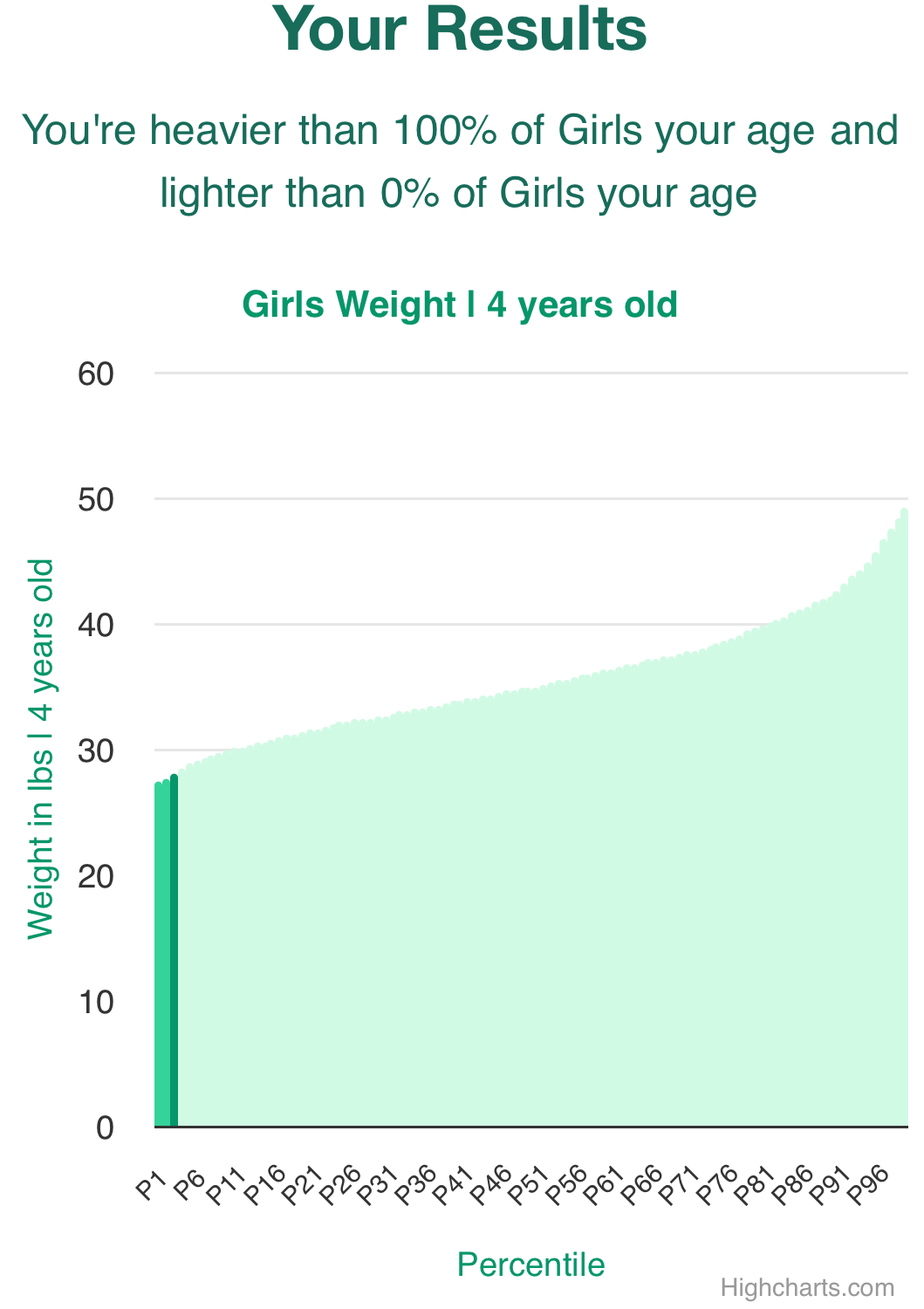Girls Weight chart in lbs for Preschoolers 4 years old

General Summary: 4 years old girls weight
In most cases, weight measurements for 4 years old girls will be in the range between 28 and 46 lbs. The average weight for 4 years old girls is 35 lbs, according to the CDC and anonymized data from users.
All Results
Enter your weight measurements above to see how they compare
So far, we have recorded [0] weight measurements for 4-years-old girls on LifeMeasure!
(chart updates daily)
See more ages